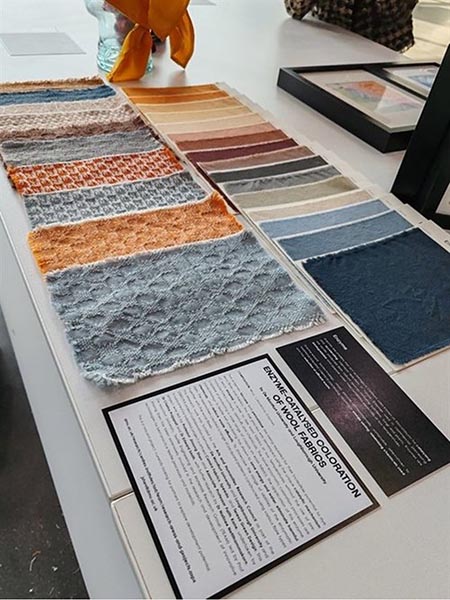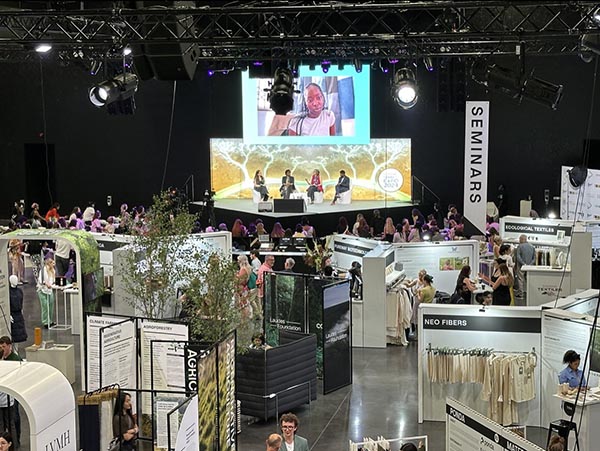
(All images courtesy of Texintel)
Innovative ways to help boost textile recycling rates and environmentally friendly dyeing using lasers and enzymes were unveiled at one of the UK’s biggest sustainability showcases.
Future Fabrics Expo featured more than 10,000 different textiles and solutions on display that could enable the fashion industry to exploit innovation in the adoption ofsustainable materials and to transition toward circularity.
Researchers and academics from the Textile Engineering and Materials Research Group (TEAM) of De Montfort University (DMU) in Leicester were part of the Expo’s innovation zone, featuring collaborations which could pave the way for alternative materials and solutions that could reduce the environmental impact of textile production and support the textile industry’s transition to circularity.
At the Future Fabrics Expo, the successful research collaboration between DMU and Loughborough University, led by Professor Jinsong Shen, showcased innovations using laser technology to apply dyes directly to textile fabrics, requiring far less energy, water, and chemicals than conventional methods. Also on display were biotechnology solutions using enzymes to dye textiles without using traditional premanufactured dyes, an alternative to conventional dyeing methods saving energy and reducing effluent waste.
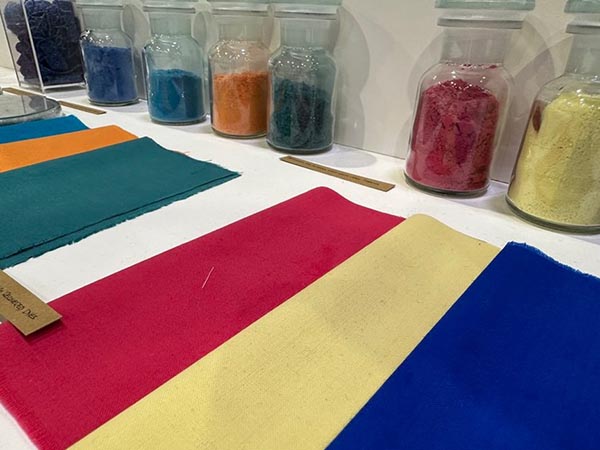
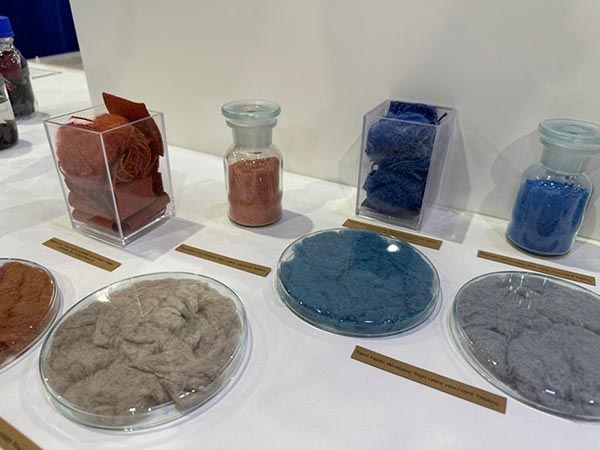
DMU and Loughborough researchers led by Professor Shen and supported by industrial partners Camira Fabrics, the Woolmark Company, and Fox Brothers and Co Ltd. also showed an innovative biotechnology approach developed in a BBSRC funded project to recycle and reuse waste wool and wool/bast fiber blended fabrics.
Flax and hemp fibers were separated from the waste wool/bast fiber blended fabrics; dyes were recovered into powder from waste wool fabrics, with the potential for their reuse to dye or print virgin wool fabrics. This could ultimately make blended textile materials recyclable and reduce waste sent to landfill.
The Expo attracted thousands of visitors who were looking for environmentally friendly solutions to some of the problems facing the fashion industry. Conventional dyeing processes have a huge environmental impact due to using large quantities of water as well as huge amounts of energy and potential contamination of precious water resources.
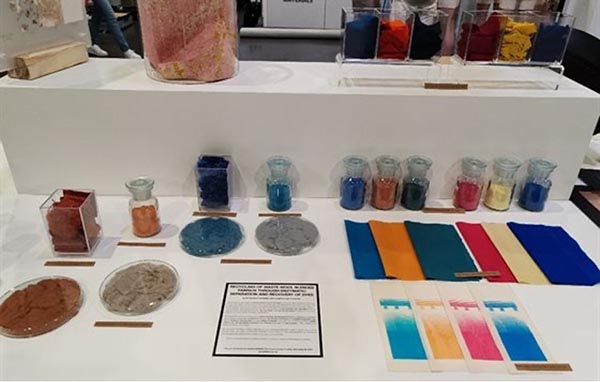
Professor Jinsong Shen, who leads DMU’s TEAM, said, “We are so delighted to be invited to exhibit our innovative technologies in the innovation hub zone at Future Fabrics Expo this year. These innovations reflect our efforts to improve textile sustainability and support the textile industry’s transition to circularity.”
